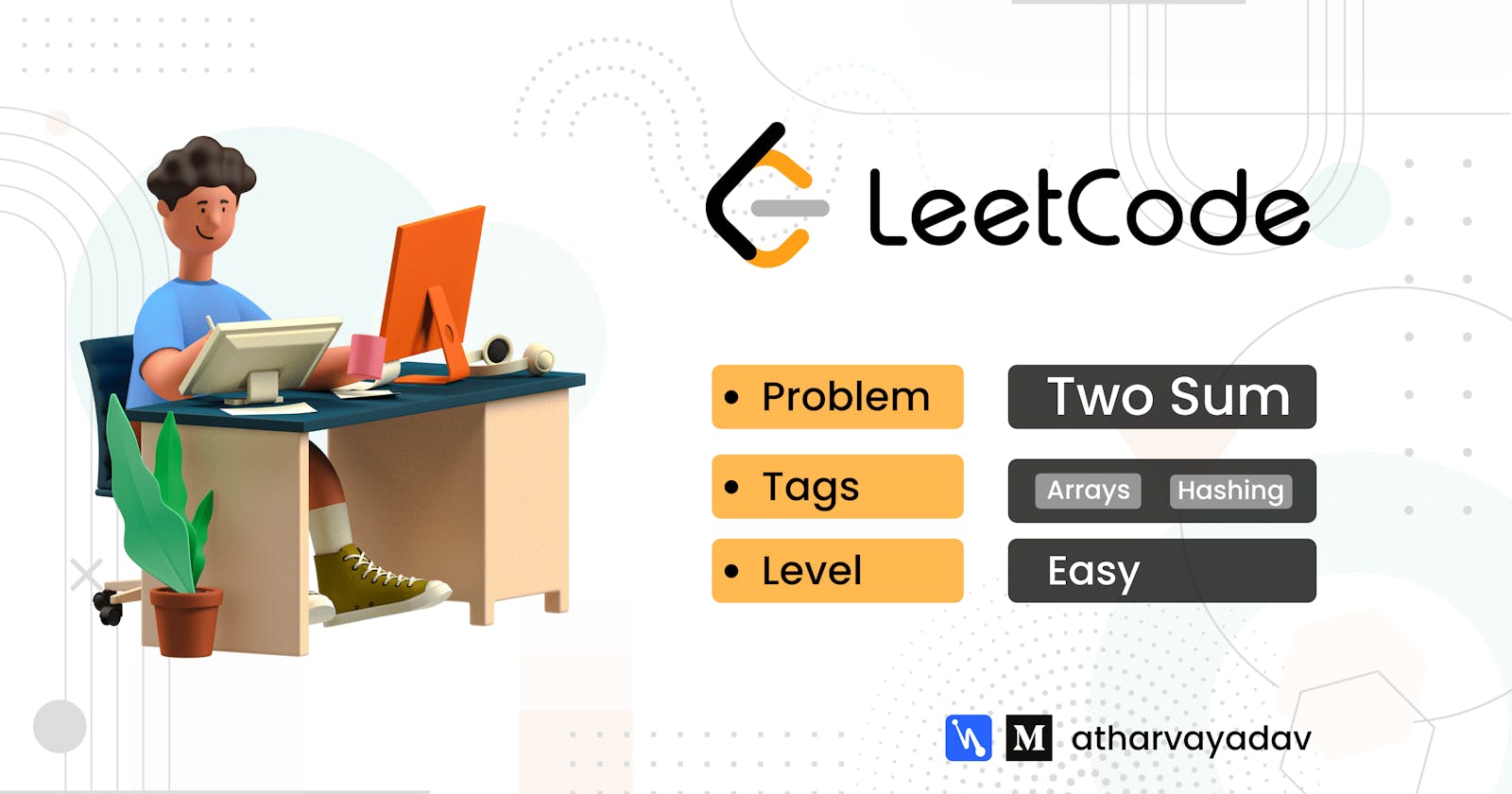1. Two Sum LeetCode Solution
Data Structures and Algorithms | Problem Solving
Hey there, Today we are going to look into the Two Sum is the LeetCode question. This question is based on Array and Hash Table topics. These topics are under one of the most important topics in data structures and algorithms. Let's see what the problem is and how we can write code as a solution to this.
- Problem Link: Two Sum
Problem Statement
Given an array of integers nums and an integer target, you need to return indices of the two numbers such that they add up to the target.
You may assume that each input would have exactly one solution, and you may not use the same element twice.
You can return the answer in any order.
Examples
Here are some sample examples through which you can understand the problem clearly.
Example 1:
Input:nums = [2,7,11,15], target = 9 Output: [0,1] Explanation: Because nums[0] + nums[1] == 9, we return [0, 1].
Example 2:
Input: nums = [3,2,4], target = 6 Output: [1,2] Explanation: Because nums[1] + nums[2] == 6, we return [1, 2].
Example 3:
Input: nums = [3,3], target = 6 Output: [0,1] Explanation: Because nums[0] + nums[1] == 6, we return [0, 1].
Constraints
- 2 <= nums.length <= 10 4
- -109 <= nums[i] <= 10 9
- -109 <= target <= 109
- Only one valid answer exists.
Solution
So, we looked into all the problem details and constraints. Now let's dive into solutions for the same.
Naive Solution
- This solution uses two
forloops. - For each element
num[i], we will check whether its succeeding elementsnum[j]give an addition equal to the target or not. - If element
num[i]in addition tonum[j]gives same value as target, then we will store thati&jindexes in C++ vector. And return that vector. - This solution will give the time complexity of O(n2). Because, for every element, we are checking the right part of the array.
// C++ Solution
class Solution {
public:
vector<int> twoSum(vector<int>& nums, int target)
{
vector<int> v;
for(int i = 0; i < nums.size(); i++)
{
for(int j = i+1; j < nums.size(); j++)
{
// If two numbers give sum equals to the target, add that pair into vector.
if (nums[i] + nums[j] == target )
{
v.push_back(i);
v.push_back(j);
return v;
}
}
}
return v;
}
};
Best Case Solution [O(n)]
- For an optimised solution, we will use hash tables.
- We will create an
unordered_mapof the integer datatype. - For an array element, we will find in the hash table whether there is any match which on addition with array element gives the
target - If a match is found in a hash table, we will return those indexes.
- Else, if a match is not found, we will store that array element in a hash table along with the index of that array element.
- This solution will give the time complexity of
O(n). As we are traversing array once andunordered_mapoperations giveO(1)on average.
class Solution {
public:
vector<int> twoSum(vector<int>& nums, int target) {
vector<int> ans;
unordered_map <int, int> m;
for(int i = 0; i < nums.size(); i++)
{
if(m.find(target-nums[i]) != m.end())
{
//Match is found in a hash table, we will return those indexes.
ans.push_back(m[target-nums[i]]);
ans.push_back(i);
return ans;
}
// Match is not found, we will store that array element in a hash table along with the index of that array element.
m[nums[i]] = i;
}
return ans;
}
};
Conclusion
So, these are the solutions to the Two Sum Leetcode Problem. Hopefully, you might understand these solutions. Please follow me for more such technical and development related content. You can also leave your suggestions, thoughts in the comment box.
Thank you!

